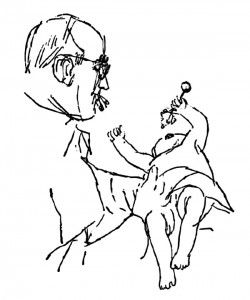
Parenting has a story out about whether kiddie sports have become too competitive:
Not only are players joining competitive leagues at ever younger ages, more and more of them are choosing to specialize, focus, and train intensively in only one sport. In 2009, for instance, the U.S. Kids Golf World Championship featured a category for boys under 6, the Amateur Athletic Union sponsored a national basketball championship for boys and girls under 8, the NCAA lowered the year at which a player could be considered a basketball “prospect” to seventh grade, and a 4-year-old tennis “prodigy” – Mia Lines – moved from Australia to south Florida to work with a professional coach.
The article then goes on to state that there is a “myth” out there that “Getting better means training younger, training harder, training more.” This, apparently, isn’t true. Starting older, training less intensely, and spending more time watching television is the way to Olympic glory, particularly if you are Bode Miller.
Don’t get me wrong, the “professionalization” of kids sports discussed in the article is a bad thing, but not for the reasons Parenting puts forth (it’s bad for the kid, it doesn’t work, etc.). The only way to get good at something is to work at it. What’s really at stake here is the loss of unstructured play time, right?
The problem with turning children into little Terrell Owenses (other than the Twitter dependency) is that they miss out on all that free time they could be using to smash their toys, bully other children, and generally be the little angels we all know them to be when they aren’t properly exercised.
Or maybe I’m biased. My Peewee League football coach was a Nutralife salesman. He wore very tight polyester pants. He wasn’t fond of black children (to put it mildly). He was kicked out of the league for attacking a ref, then asked the team to vote on whether or not we should boycott the next game to get him reinstated. I was the only one who voted against sticking with him. The coach was replaced…for one game.
Suffice it to say he wasn’t too pleased with me when he returned. He did get me in good shape though.

 Before I start my diatribing, let me thank commenter Jeff, who over the weekend
Before I start my diatribing, let me thank commenter Jeff, who over the weekend 

